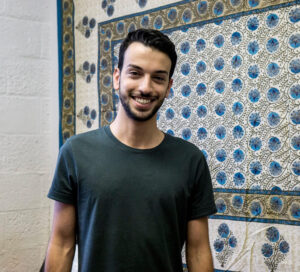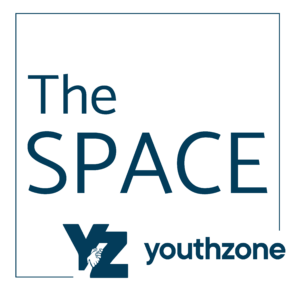Rami El Gharib
Restorative Justice Coordinator
Lebanon, with its history of war and armed conflict, is the same country that I call home. Several Lebanese communities were left fractured in the brutal civil war from 1975 to 1990. If you look at these places now though, it is as if a war had never happened. These communities found a way to repair harm and find a common ground, but how could that be?
I later discovered that a Restorative Justice project brought these conflicting neighborhoods together. In 1999, these two divided parties put aside their differences and used facilitated dialogues for healing. Eventually, neighbors that were once in arms and fighting each other started inviting each other to holiday dinners and gatherings.

This history opened my eyes to Restorative Justice and inspired my interest in using this process of community building to bridge a divide and find a space to share one’s truth without shame. In 2018, I moved to the United States and was able to see the direct effects of Restorative Justice through several of my internships and my current position at YouthZone. The Roaring Fork Valley might not have a civil war going on, but it has its fair share of community conflicts and harm, and I am grateful to work with youth to be able to address this harm through Restorative Justice.
Restorative Justice aims to provide learning and growth to a youth offender through a victim-centered approach. When the offender repairs the harm done to a victim and the community, all three parties are given a voice. Restorative Justice is also used to address harm in a community and strengthen a sense of community in different settings such as schools, non-profits, and community groups.
Whether it is an incident of theft or a conflict between students in a classroom, these confrontations can be addressed by holding a Restorative Conference or Circle. Through YouthZone services, I am able to be an active member in repairing harm and holding offenders accountable while also giving these youth the chance to reintegrate into their communities. This also allows me to assist in meeting the needs of victims and the community.
Recently, YouthZone has also established a safe space for LGBTQ+ youth to address harm encountered by these young people. “The Space” will build a sense of community among LGBTQ+ youth. During these difficult times, having a community to relate to and having a sense of support is much needed, whether it is done virtually or in-person.

I was lucky to find that sense of community as a young gay teenager in Lebanon due to community centers that LGBTQ+ non-profits provided. These safe places helped build my confidence and self-esteem and gave me the support I needed to not feel alone. I find it vital to create a space for LGBTQ+ youth in this valley where a recent study shows they are underserved.
I might have not been able to be an active participant in the Restorative Justice process that was held in Lebanon during the early 90’s but I am proud to be an active member of this movement in the Roaring Fork and Colorado River valleys.
YouthZone provides trainings for volunteers and community members that are interested in having a Restorative Justice process in their organizations or communities. For more information on setting up a training or for information about The Space, call 970-945-9300.
Rami El Gharib is the Restorative Justice Coordinator at YouthZone. Rami focuses on the education and training of volunteers and community members on the Restorative Justice process as well as the facilitation of conflict resolution and community building through his work. Rami graduated from the University of New Haven with a master’s degree in Industrial and Organizational Psychology.
